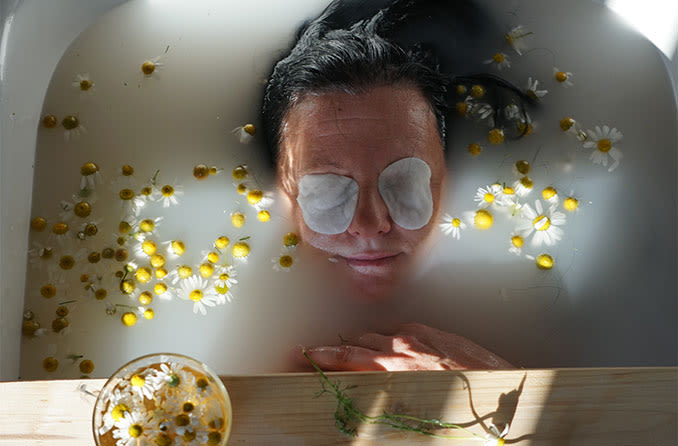How to reduce eye floaters naturally

It can be bothersome when squiggly lines or rings suddenly or even occasionally appear in your field of view. Though annoying, these lines or rings (called floaters) are usually benign and do not require medical treatment.
But if they don’t need medical treatment, is there a way to reduce floaters in eyes naturally? While there are some natural treatments for eye floaters that you can try, most only work to reduce the irritation that comes with floaters rather than eliminating them completely.
“Natural remedies” for floaters simply involve changing day-to-day behavior, such as changing your diet and getting more sleep. Usually, learning to ignore floaters is just as effective as any “natural eye floater cure.”
Remedies you may consider for coping with floaters include:
Hyaluronic acid
Hyaluronic acid eye drops are often used after eye surgery to reduce inflammation and help with the recovery process. It has also been used as over-the-counter dry eye treatment.
There are some claims that hyaluronic acid may help dissolve eye floaters naturally, though there isn’t much scientific evidence that supports this.
Consult an eye care provider before using hyaluronic acid eye drops to address floaters on your own.
Diet and nutrition
Though they may not target floaters specifically, some vitamins and supplements can support overall eye health. Some recommended supplements include:
Zinc
Vitamins A, C and E
Ginkgo biloba
Proper hydration and a healthful diet can also provide the necessary nutrients to support eye health.
SEE RELATED: How to choose eye and vision supplements
Rest and relaxation
If your body isn’t getting enough sleep or rest, it can cause stress on the eyes, and floaters may seem more apparent. Be sure to get an appropriate amount of sleep each night in order to prevent exhaustion.
If floaters cause general irritation, a cool or warm compress may be placed over the eyes to soothe them.
Protect your eyes from harsh light
Eye strain — especially from staring at a computer screen for long hours — can also make floaters more noticeable. Taking frequent breaks and limiting screen time can reduce your risk of digital eye strain, a condition that may increase your awareness of floaters.
Certain lighting can make you more aware of floaters as well. Be sure to dim interior lights when they are too bright for your eyes or use lamps instead of overheads. On the contrary, if you’re trying to read in a dimly lit room, you may need to increase the light to prevent eye strain.
If bright, outdoor environments seem to aggravate floaters, wearing sunglasses with proper ultraviolet (UV) protection is a good idea.
Floaters naturally fade on their own
Patience is a virtue. Floaters don’t necessarily disappear forever, but they will typically move out of your field of view or become less bothersome with time.
If your floaters don’t fade naturally, or if they increase dramatically or are accompanied by flashes of light, see an eye care provider immediately.
Page published on Tuesday, 17 May 2022






